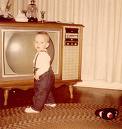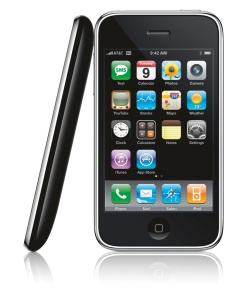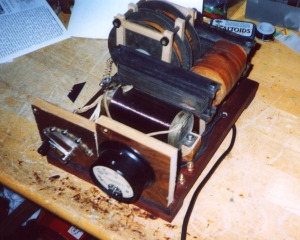I heard that KL4NGN recently submitted a petition to the FCC requesting that the number of questions in the question pool be increased by a factor of 50. The reason behind the requested increase is due to the claim that the knowledge held by the operator does not match the license class.
The author of the article I read (k3ng) states that he admits using an online question pool to pass his Extra class license around 10 years ago. But he also states that most of his knowledge came from electronics knowledge, professional training and interaction with other c lub members over his years in the hobby.
lub members over his years in the hobby.
Reducing the questions in the pool is now called the “Dumbing Down” of Amateur Radio. Remember when CW was the ultimate deterrent and how that battle about removing that requirement raged on for years? When I read this article I began to think, here we go again!
k3ng finds “dumbing down” to be an insulting term. The 100% hard core CW ops might say, if you haven’t passed a code test you have dumbed down the hobby. Dxers think it may be those operators who can’t figure out how to work “split” are dumbing it. Others may think of dumbers (is this really a word?) as those who rag chew in the middle of a contest! For some reason the term “LID” comes to mind. Isn’t that what it used to be called?
Back in the 50’s, the general public thought of Amateur Radio as a “service” and those who were licensed were available to provide nationwide emergency communications. Back then, the hobby was also viewed as a place where technological growth took place. Being a Ham back in those days held a certain prestige. Today it’s viewed as another hobbyist having fun.
Technology has surely passed Amateur Radio by. We are no longer living in the 1940’s, a time when people were getting introduced to television. Today the technical advances of this world are both astounding and rather frightening.
For example, I recently watched a presentation by Apple about the 3.0 version of the iPhone O/S. Here is a prime example of astounding technology. In just over a year since the iPhone (and iPod Touch) was introduced, Apple has sold over 12 million units in 80 countries. The iPhone (and iPod Touch) have over 2,500 applications available by download via iTunes (many are free and others range from .99 to about 4.99) and those apps have been downloaded over 800 million times. The new 3.0 release will allow hundreds of new API’s to produce untold types of software designs.
I know I am getting sidetracked here but just have to say that there were too many enhancements to even begin to mention. One of the engineering presentations within the 1.2 hour long presentation depicts how medical devices may now be coupled to the iPhone via Bluetooth technology.
By this summer the iPhone will be ready to track diabetic glucose results, chart that information and based on many factors including specifics about the iPhone’s owner, the software will define the dosage of insulin needed before a meal is taken.
The presentation went on to talk about a 15 year old girl who must test her blood glucose level 6 times a day. Before the availability of this diabetic management tool, the young lady would have to calculate her dosage of her insulin shot with pen and paper. There was no electronic medium to store her daily levels or the long term trending of her information. Now, this young lady can manage her healthcare with a device which fits into her lifestyle. Forwarding charts and other historical information to the healthcare professional is as easy as sending a message over the 3G network.
Getting back to a less exciting but important topic, k3ng goes on to talk about how the FCC rejected the argument in it’s “matter-of-fact” style stating that the ‘dumbing down” argument is merely a way of determining if the applicant is qualified to run a station. Other than allowable frequencies for example, does an Extra class and a Tech class operator differ in the way they operate a station? Is more technical knowledge required to operate on the first 25kc’s of 40 meters? No exam will provide that difference or other factors of station operation.
k3ng goes on to state: “If we look at some of the biggest jerks and idiots on the air and in the amateur radio world on the Internet, some of them have outstanding technical qualifications. I can think of one infamous amateur (who I won’t name here) who has his PhD in Physics and holds several patents. The guy is the lowest life form on the planet when on Internet forums and as far as I am concerned is a useless to amateur radio. But he can pass any technical test you can throw at him”.
I’d have to agree that the above paragraph provides a proof to the absurdity of the “dumbing down” claim by some hams. If you reflect back for a second to my iPhone nformation it is evident that the bright young minds of today’s world are not focusing on radio communications at frequencies below 30 MHz. As an old time Ham friend of mine said to me many years ago, “you guys today… are really nothing more than appliance operators”. And sadly, there is much truth in that statement.

You don’t have to build anything today to operate a station. There are no spark gap transmitters in my shack and I don’t “load up” the switched off power line between the house and the cow barn as my antenna! ( I actually received a QSL card from a Ham many years ago [then in his 80’s] who had done just that as a child). Having specific knowledge or college degrees cannot in itself make a better station operator.
I am wondering if this incident is going to be a revival of the code argument that raged on for years. I’d have to agree with k3ng that the term “dumbing down” is inflammatory. Those hung up on the suggested change to testing criteria simply appear to have a strong desire to re-create the “class system” around the alleged skills of station operators.
What is your opinion?


Couldn’t put it in a “few words” so I wrote it up on my blog.
N8ZYA
LikeLike
I am studying to get my tech and I am not near as intelligent as my husband in the area of electronics. He is an extra and I’m proud of him. I know that ham radio was harder to get into back in the day but what will keeping people out resolve when ham radio does not have the draw it did years ago?
The study pool and some of the slideshows have been a help to me. No, I don’t build radios and that isn’t where my particular intelligence lies but I am a good communicator. I have gone to college and was on the dean’s list so I am not unintelligent. But being intelligent in the area of electronics is not the only thing ham radio is about.
I will never be like my husband but I will learn and if the test were raised to have a 100 questions, I will study and pass it, the same as I would if it were 50. I don’t really care how many questions are on the test. But I am interested in ham radio and I do want to learn. Make the test harder if you like but I will succeed, not because of superior radio skills but because I have the desire to try.
I will be a good ham radio operator one day. You could keep making the tests harder to keep people like me out but what would you accomplish? I do have my own particular talents but I can still learn from you and I can be a good part of ham radio. I don’t think ham radio is about exclusivity.
Also, I do not believe that you are “dumbing down” by accepting people like me. I believe that you giving me a helping hand up and I do appreciate it.
LikeLike
I agree with the Petitioner… there has been a lowering of the entrance requirement and it will NOT HELP ham radio be better. Memorizing a number of answers, which are known in advance of the test, is hardly going to satisfy the purpose of the test, which is to assure each operator has a modicum of important knowledge to build and operate a station competently and SAFELY. We are dealing with devices and processes that can present lethal voltages, and which can injure people and start fires. We are talking about a rather technical operation that is NOT like operating a cell phone or watching television. Poor operating practice can cause horrible distortion and splatter across the bands, which is unnecessary and causes harmful interference. The test should not be thought of as a gatekeeper, outside the important function of assuring the operator has been exposed to important information about RF exposure, how to handle high current and high voltage, and how the equipment works, and interacts with other equipment. Merely memorizing a number of statements to pass the test is making it too easy. The FCC should, instead, clearly identify the requisite knowledge and material, and then give a surprise test which actually tests the understanding of the operator, and his ability to reason and give the correct answer – not because it sounds familiar, but because he actually understands why it is the correct answer. This was the original intent of the exam system, but giving the answers before the test is certainly dumbing it down so anyone can pass – WITHOUT REALLY KNOWING OR UNDERSTANDING THE MATERIAL BEHIND IT – and that, my friends, is a bad thing.
James – K8JHR
LikeLike
What nonsense. I got my Extra and also 1st phone and 2nd telegraph in the 1970s. The current written tests are NOT dumbed down. Code is gone, sure, but it’s no longer needed and it proved nothing anyway. Look folks you memorized a lot to pass the exams in the old days, too.
LikeLike